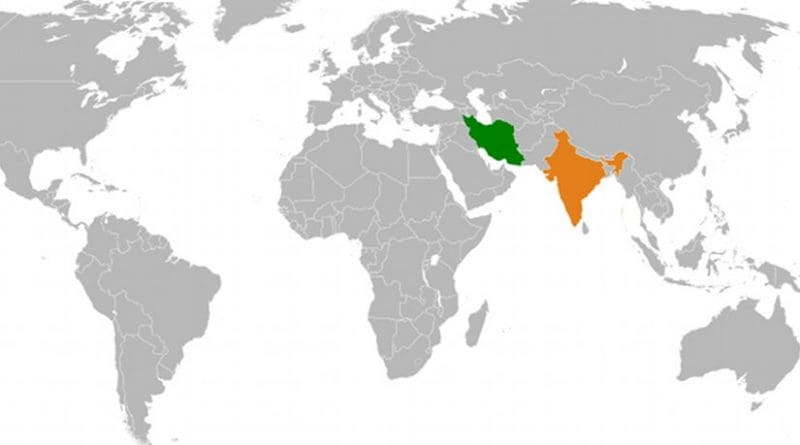India-Iran Relations Need To De-Hyphenate From Riyadh And Islamabad – OpEd
By Iran Review
By Tridivesh Singh Maini and Manish Vaid*
The removal of sanctions on Iran has opened new vistas for many foreign investors and the recent back to back visits of Iran by India’s Petroleum Minister, Dharmendra Pradhan on April 9-10 and External Affairs Minister, Sushma Swaraj on April 16-17, has sent a clear message, that it would like to strengthen economic ties with Tehran and make the most of the changing geo-political situation. Yet India has always shared a strong relationship with Iran even during the time it shared a strained relationship with the US.
The reasons are as follows:
Firstly, Iran and India’s foreign policies have not been totally in sync and both countries have sought to have independent policies without seeking to become appendages of anyone’s state. After the imposition of US sanctions in 2012, former Prime Minister Dr. Manmohan Singh made it a point to attend the NAM Summit at Tehran, much to the chagrin of the West.
Moreover, the economic relationship between the two countries has been reasonably stable so far even during sanctions. This relationship is likely to get further bolstered by the recent trips of India’s petroleum and foreign ministers to Iran not just to enhance energy cooperation and accelerating the development of Chabahar port, but also concluding the pending agreements such as Preferential Trade Agreement, Double Taxation Avoidance Agreement and Bilateral Investment Treaty, which are a must for enhancing the economic cooperation.
During the Indian External Affairs Minister’s visit, Iran’s President Hassan Rouhani has already assured India of providing all the important support in India’s oil and gas needs, besides expanding overall bilateral ties. According to Vikas Swarup, spokesman of the Ministry of External Affairs (Government of India) Mr. Rouhani also spoke about Chabahar port, as a “defining partnership which has the potential of connecting the entire region”.
Earlier during Dharmendra Pradhan’s visit to Iran, India has already signed agreements on crude oil imports and Iran’s Farzad-B gas field development, besides investing $20 billion in Chabahar port, which is in addition to $100 million Line of Credit for berths and jetties at Chabahar.
Inspite of the strong relationship between both countries, it seems that the bilateral relationship gets overshadowed by the Saudi Arabia and Pakistan factor. This is even though both countries have sought to be mature in handling these contentious issues. While in the aftermath of Indian PM Modi’s Saudi Arabia visit, there were question marks about how India would walk a tight rope between the GCC and the Persian Gulf, recent visits by two Ministers as well as the likely visit by the Indian PM to Iran are a strong reiteration that India will balance both relationships and no longer views this from the narrow ‘Shia-Sunni’ prism. Interestingly, even Pakistan traditionally a close ally of Saudi Arabia is seeking to build close relations with both Iran and Saudi-Arabia.
If one were to look at the Pakistan factor in India-Iran relations, during President Rouhani’s Pakistan visit, the issue of RAW involvement in Pakistan got considerable attention. On being queried by a Pakistani journalist whether the Pakistan army chief, Raheel Sharif had raised this issue in a conversation with him, Rouhani was quick to snub him and unequivocally state that Iran has an important relationship with Pakistan and an equally important one with India. Pakistan had released the video of confessions by Kulbhushan Yadav, who they alleged was a RAW spy. The video was suspicious and according to Indian intelligence agencies, Yadav was kidnapped from Iran by a Sunni terrorist organization.
Therefore, in India’s foreign policy goals, Iran continues to remain a trusted partner, and while India is balancing its relations with Iran and Israel, besides Saudi Arabia, a particular emphasis should be given to developing a robust India-Iran relationship – both economically and strategically, which can eventually provide more stability in the Gulf region.
India would do well to wrap up all pending agreements and deals with Iran which help enhance the overall economic and strategic ties of these countries, which are not just limited to hydrocarbon business.
*Tridivesh Singh Maini is a New Delhi based policy Analyst associated with The Jindal School of International Affairs, Sonipat, India.
*Manish Vaid is a Junior Fellow with the Observer Research Foundation, having research interest in energy policies and geopolitics.

